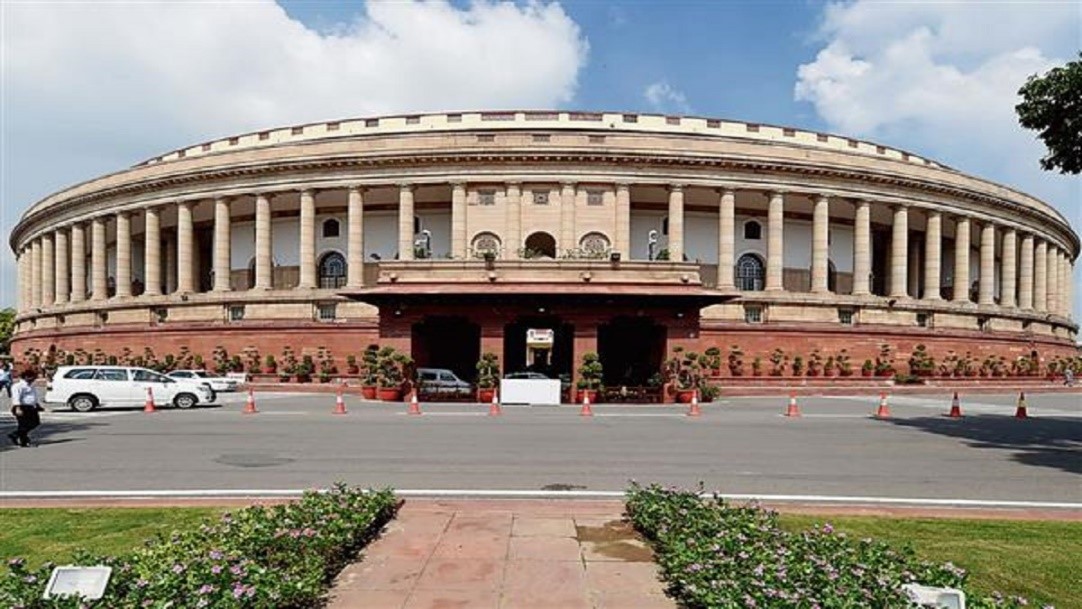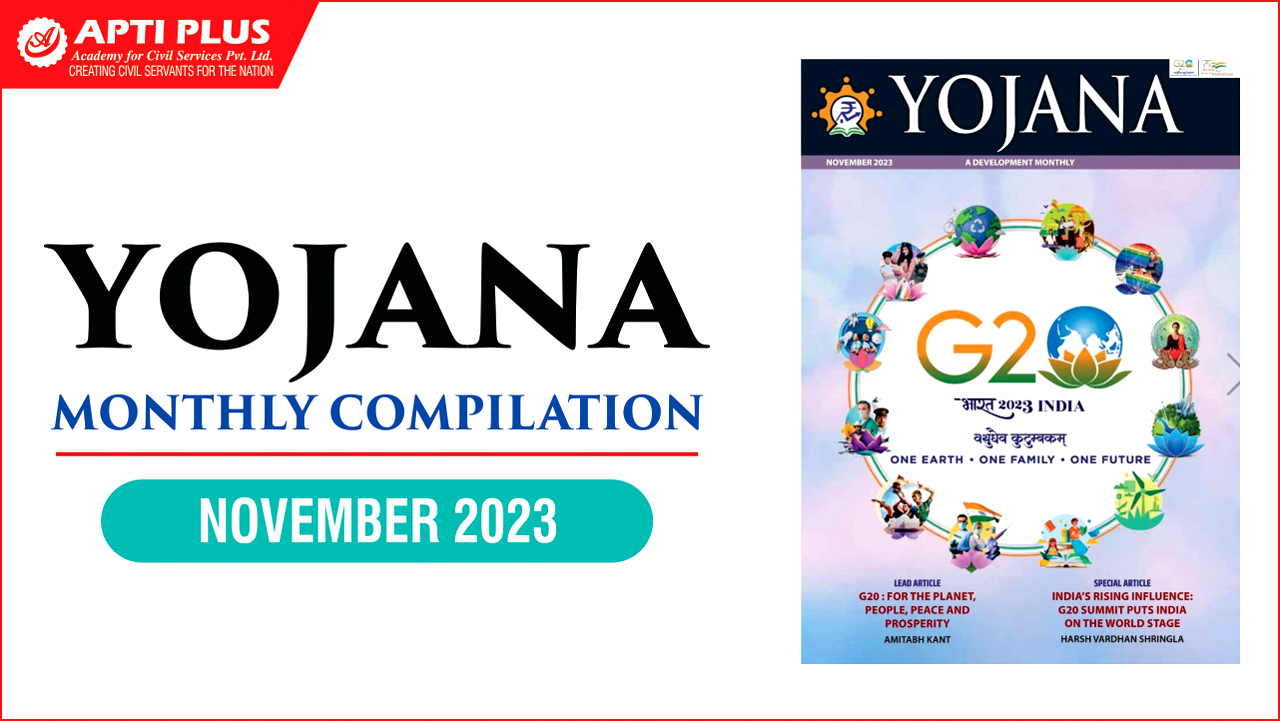PERSPECTIVE: Winter Session of Parliament

Disclaimer: Copyright infringement not intended.
Context
- The Parliament of India is the supreme legislative body and a living epitome of freedom and sovereignty of the people of India.
Details:
- It occupies a pre-eminent and pivotal position in India’s democratic polity. Winter Session, 2023 of Parliament will commence from 4th December and continue till 22nd December with 15 sittings spread over 19 days.
- The government has presented a heavy legislative agenda for the 15 sittings of the Winter Session with key bills to replace the colonial era criminal laws.
- On day one of the proceedings, the Rajya Sabha passed the Post Office Bill, 2023, while the Lok Sabha cleared the Advocates (Amendment) Bill 2023.
- Some of the Bills that are likely to be taken up during the winter session are the Bharatiya Nyaya Sanhita Bill 2023, Bharatiya Nagarik Suraksha Sanhita Bill 2023, and Bharatiya Sakshya Bill 2023.
- The Opposition leaders have also sought discussion in the Parliament on issues such as the situation in Manipur, rising inflation, “misuse” of the Enforcement Directorate and the Central Bureau of Investigation, the “imposition” of Hindi through the names of laws, particularly about the three bills to replace the criminal laws.
INTRODUCTION:
- In India, Parliament is bicameral, consisting of two houses: the Lok Sabha (House of the People) and the Rajya Sabha (Council of States). A parliamentary session refers to the period during which the Parliament meets to conduct its business. The Parliament of India follows a yearly calendar, and the sessions are convened by the President of India.
- There are three main sessions in a parliamentary year:
Budget Session:
- This is the first session of the parliamentary year and usually begins in January or February.
- The session is primarily devoted to the presentation and discussion of the Union Budget.
- It is divided into two parts: the first part focuses on the presentation of the budget, and the second part involves the consideration and passing of the budget.
Monsoon Session:
- The Monsoon Session typically starts in July and continues until August or September.
- During this session, various legislative and policy matters are discussed and debated.
- The session is named after the monsoon season, as it allows Members of Parliament (MPs) to participate in parliamentary activities without hindrance from agricultural duties.
Winter Session:
- The Winter Session usually begins in November and lasts until December.
- This session is the last one in the parliamentary calendar and focuses on pending legislative business.
- It provides an opportunity to address any remaining issues before the end of the calendar year.
| The winter session is effectively the last window for the government to clear legislation before the 2024 Lok Sabha polls will be conducted in 15 sittings till December 22. |

Details of Winter Session:
- The Winter Session of the Parliament in India typically takes place from November to December.
- During this session, Members of Parliament (MPs) discuss and deliberate on various legislative matters, policies, and issues of national importance.
- The Winter Session is the last parliamentary session in the annual calendar, and it provides an opportunity to address pending legislative business before the end of the calendar year.
Key features of the Winter Session include:
Timing and Duration:
- The Winter Session usually begins in November and lasts until December. The specific dates are decided by the government and are announced in advance.
- The duration of the session can vary, depending on the legislative agenda and the need to address specific issues.
Agenda and Business:
- The Winter Session covers a wide range of legislative and policy matters. MPs engage in discussions, debates, and deliberations on pending bills, proposed laws, and various national issues.
- The session may include the introduction and consideration of new bills, amendments to existing laws, and discussions on matters of public importance.
- It provides an opportunity for the government to present its legislative agenda and for the opposition to scrutinize and express its views on proposed policies.
Budgetary Considerations:
- While the primary focus of the Budget Session is the presentation and approval of the Union Budget, the Winter Session also plays a role in addressing financial matters.
- In some cases, supplementary demands for grants may be presented and discussed during the Winter Session.
Question Hour and Zero Hour:
- Similar to other sessions, the Winter Session includes Question Hour, during which MPs can ask questions of ministers to seek clarifications on various issues.
- The Zero Hour allows MPs to raise important matters without prior notice. This time is used for the discussion of urgent matters of public interest.
Committee Meetings:
- Parliamentary committees play a crucial role in scrutinizing legislation and government policies. During the Winter Session, committee meetings may take place to review specific bills and matters assigned to them.
Adjournment and Prorogation:
- Like other sessions, the Winter Session can be adjourned if there is a need to pause proceedings The session is prorogued (officially ended) when all the business on the agenda is completed.
Special Circumstances:
- In certain situations, the government may call for a special or extended session to address urgent matters that cannot wait until the next scheduled session.

Importance of parliamentary sessions:
Legislative Business:
- Passage of Laws: The primary function of Parliament is to legislate. During sessions, Members of Parliament (MPs) deliberate on proposed bills, discuss their provisions, and vote for or against them. This legislative process is essential for the enactment of new laws and the amendment or repeal of existing ones.
Policy Formulation:
- Debates and Discussions: Sessions provide a platform for MPs to engage in debates and discussions on a wide range of issues, including national policies, governance, and current affairs. This helps in shaping and refining government policies through collective decision-making.
Financial Oversight:
- Budget Approval: The presentation and approval of the Union Budget are significant aspects of parliamentary sessions. MPs review the government's financial proposals, scrutinize expenditures, and ensure that public funds are allocated in a transparent and accountable manner.
Question Hour:
- Executive Accountability: During the Question Hour, MPs can pose questions to government ministers, seeking information and clarification on various matters. This contributes to executive accountability, as the government is required to answer questions raised by elected representatives.
Representation of Public Opinion:
- Voice of the People: Parliamentary sessions serve as a forum for MPs to articulate the concerns and opinions of their constituents. Through discussions, speeches, and questions, MPs represent the diverse perspectives of the public they serve.
Oversight and Accountability:
- Committee Work: Parliamentary sessions facilitate the functioning of various parliamentary committees that scrutinize government actions, policies, and expenditures in detail. Committees contribute to the oversight and accountability of the executive branch.
Addressing National Issues:
- Emergency Debates: In times of national emergencies or crises, parliamentary sessions allow for immediate debates and discussions. This enables quick decision-making and response to pressing issues affecting the country.
Constitutional Duties:
- President's Address: Each session begins with the President's Address, outlining the government's policies and priorities. This sets the agenda for the session and provides a comprehensive overview of the government's plans.
Representation of Diversity:
- Regional and Cultural Diversity: Parliament is a diverse institution representing different regions, cultures, and communities. During sessions, MPs from various backgrounds contribute to the pluralistic and inclusive nature of decision-making.
International Relations:
- Ratification of Treaties: Parliamentary sessions are instrumental in ratifying international treaties and agreements. MPs discuss and vote on matters related to India's engagement with the global community.
Issues in the sessions of Parliament:
Legislative Matters:
- Bills and Laws: The primary purpose of parliamentary sessions is to debate, discuss, and pass bills that may become laws. These bills can cover a wide range of issues, including economic policies, social reforms, and administrative changes.
- Amendments: During sessions, MPs have the opportunity to propose amendments to existing laws or the Constitution. This allows for the continuous evolution and improvement of legislation.
Policy Matters:
- Government Policies: Sessions provide a forum for the government to present its policies on various issues, including economic development, foreign affairs, defense, education, and healthcare. MPs can scrutinize these policies and provide feedback.
- Question Hour: MPs can pose questions to government ministers during the designated Question Hour. This allows for direct accountability and transparency as ministers are required to respond to queries raised by parliamentarians.
Budgetary Matters:
- Union Budget: One of the significant aspects of the Budget Session is the presentation and discussion of the Union Budget. MPs analyze and debate the government's financial proposals, allocations, and expenditure plans.
- Appropriation Bills: Parliament approves the government's expenditure through the passage of appropriation bills during sessions. This is a crucial aspect of parliamentary oversight on financial matters.
Discussion on National and International Issues:
- Debates: Sessions provide a platform for MPs to engage in debates on issues of national and international importance. These debates allow for the expression of diverse opinions and the formulation of comprehensive policies.
- Foreign Affairs: Parliamentary sessions may include discussions on India's foreign relations, treaties, and international agreements. MPs can express their views on diplomatic matters and raise concerns.
Special Motions and Resolutions:
- No-Confidence Motions: MPs can move a no-confidence motion against the government, questioning its majority. This can lead to a debate and a vote of confidence.
- Adjournment Motions: MPs may move adjournment motions to discuss urgent matters that require immediate attention. If accepted, these motions can lead to the suspension of normal business to address pressing issues.
Constituency Concerns:
- Issues Raised by MPs: MPs often raise issues related to their constituencies during sessions. This allows them to highlight local concerns and seek the government's intervention or response.
- Petitions and Representations: Parliamentarians can present petitions and representations from the public, bringing specific grievances or issues to the attention of the government.
Oversight and Accountability:
- Committee Reports: Parliamentary sessions provide an opportunity for presenting reports from various parliamentary committees. These reports reflect the findings and recommendations of committees that scrutinize different aspects of governance.
- Discussion on Reports: MPs can discuss the findings of committee reports, ensuring oversight and holding the government accountable for its actions and policies.
Crisis Management:
- Emergency Sessions: In times of national crisis or emergencies, special sessions may be convened to address urgent issues and formulate a collective response.
- Debates on Crisis Management: Parliament can discuss and debate crises, allowing for a unified approach to handling emergencies.

Key events at the end of Parliamentary sessions:
- Prorogation: The President of India, who is the ceremonial head of state, has the authority to prorogue the session. Prorogation officially terminates the ongoing session, signaling its conclusion. This is done through a formal notification.
- President's Address: At the beginning of each session, the President addresses a joint sitting of both Houses of Parliament. Similarly, after a session, the President may address Parliament again. This address reflects on the government's achievements, outlines future policies, and provides a comprehensive overview of the nation's priorities.
- Valedictory Speeches: Members of Parliament often deliver valedictory speeches during the concluding moments of a session. These speeches may reflect on the session's proceedings, highlight achievements, and express gratitude to colleagues and constituents.
- Passage of Bills and Resolutions: The conclusion of a session may involve the final passage of pending bills and resolutions. Any legislative business that has not been completed during the session may be carried over to the next session.
- Evaluation and Reflection: After the conclusion of a session, there may be a period of evaluation and reflection on the legislative and policy outcomes. This could involve reviewing the effectiveness of parliamentary debates, scrutinizing the implementation of laws, and assessing the overall impact on governance.
- Break Before the Next Session: Following the conclusion of a session, there is typically a break before the next scheduled session. This break allows MPs to engage with their constituents, participate in committee work, and prepare for the upcoming legislative agenda.
Conclusion
- The Winter Session of the Parliament in India serves as the concluding chapter in the annual legislative calendar. As the final opportunity for lawmakers to address pending legislative business and critical national issues before the close of the calendar year, this session holds significant importance. During the Winter Session, Members of Parliament engage in robust debates, discussions, and deliberations, aiming to bring resolution to key matters affecting the nation.
- The session provides a platform for the government to present any remaining legislative proposals and for the opposition to voice its concerns and contribute to the decision-making process.
CITATIONS:
https://sansadtv.nic.in/episode/perspective-winter-session-of-parliament-02-december-2023
https://www.thehindu.com/news/national/winter-session-day-1-live-armed-with-election-wins-bjp-ready-to-take-on-india/article67603562.ece
https://www.livemint.com/politics/winter-session-of-parliament-begins-today-heres-the-list-of-bills-to-be-taken-up-11701654390296.html
https://www.livemint.com/politics/news/parliament-winter-session-2023-december-4-mahua-moitra-cash-for-query-ipc-crpc-pending-bills-lok-sabha-congress-bjp-11701482730530.html
https://www.thehindu.com/news/national/2023-winter-session-of-parliament-to-start-on-december-4/article67517248.ece




